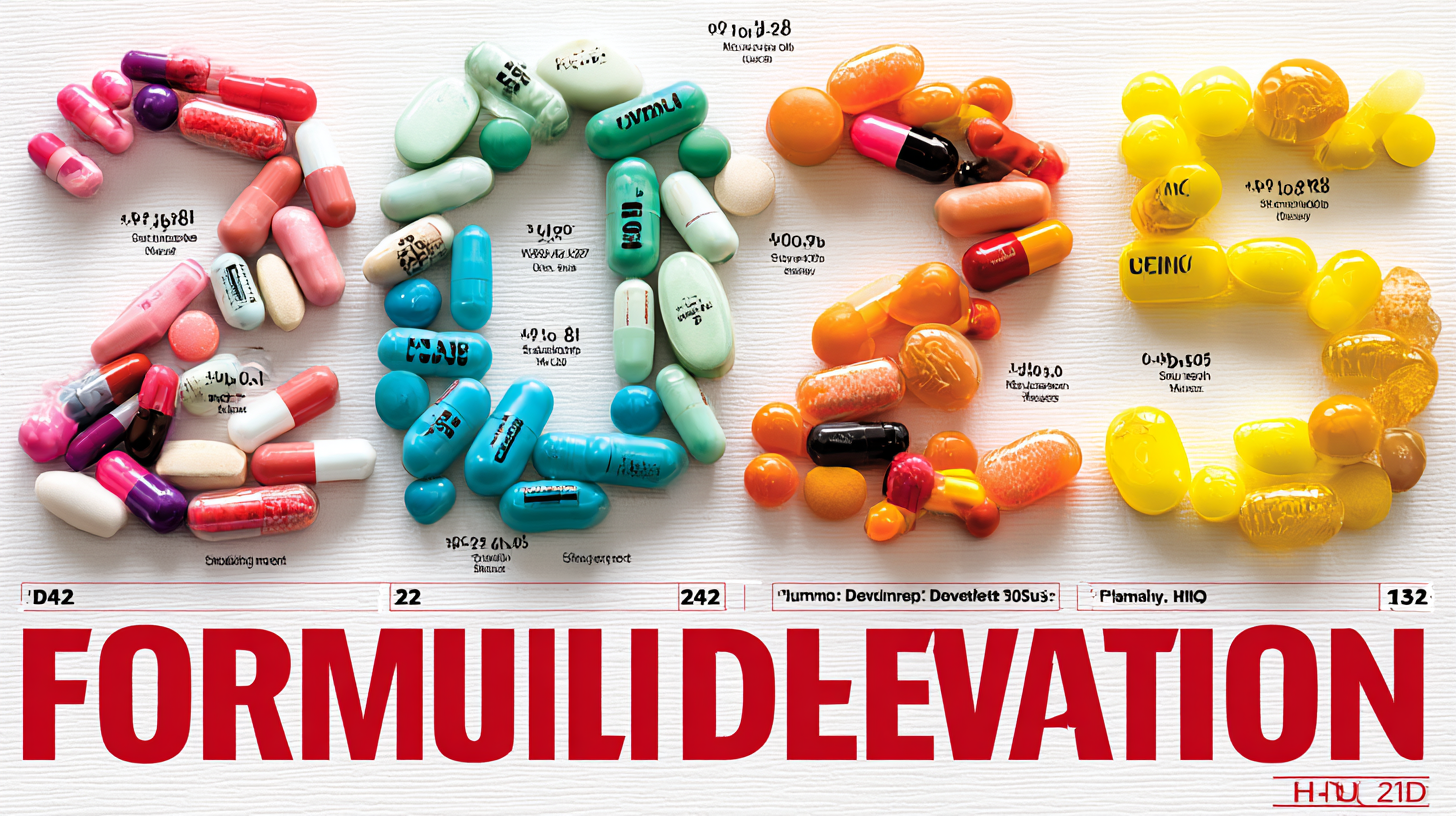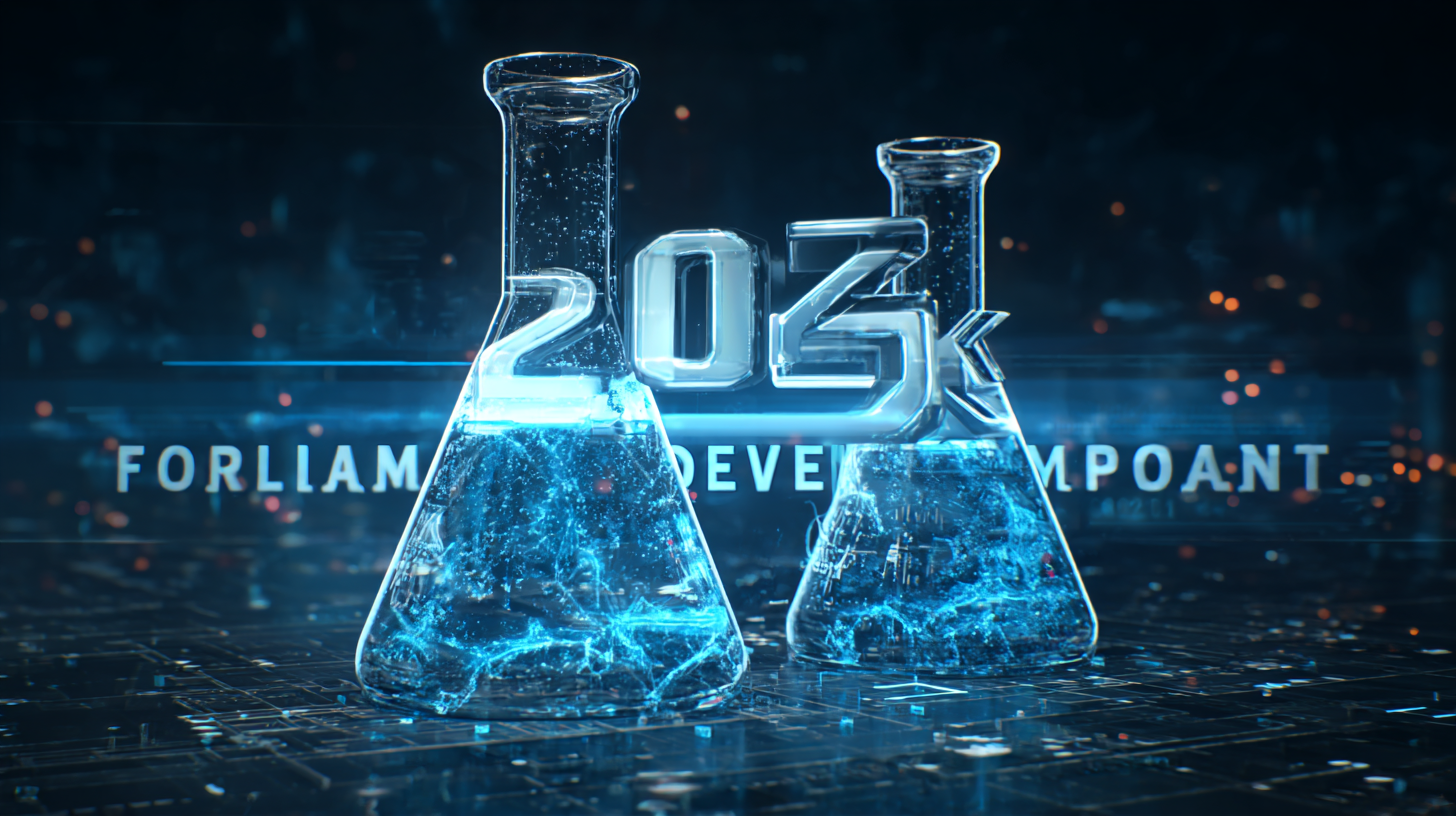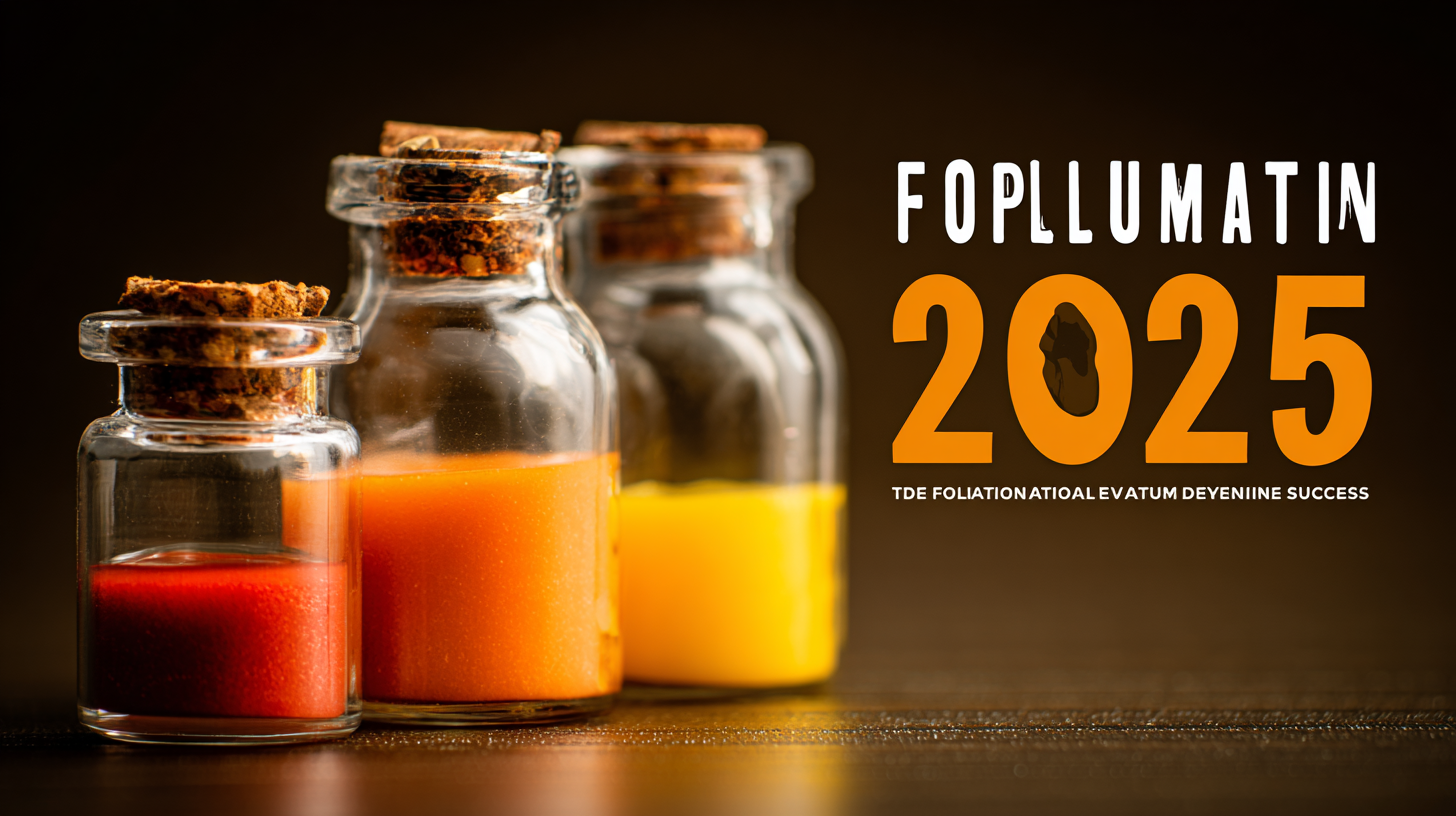As we approach 2025, the landscape of Formulation Development is undergoing significant transformation driven by advanced technologies and evolving regulatory requirements. According to a recent report by the Pharmaceutical Research and Manufacturers of America, the global market for formulation development is projected to reach $12 billion by 2025, reflecting a CAGR of 7.6%. This growth is largely attributable to the increasing demand for innovative drug delivery systems and personalized medicine. In an era where the complexities of product formulation require stringent compliance with import and export certifications, manufacturers must harness technological advancements to streamline processes and enhance product efficacy. In this blog, we will explore key industry trends influencing formulation development, with a particular focus on the critical role of advanced technologies in ensuring success amidst regulatory challenges.

The integration of artificial intelligence (AI) and machine learning (ML) into formulation development is transforming how industries approach product creation. These advanced technologies enable scientists to analyze vast amounts of data quickly, leading to more informed decisions in the formulation process. For instance, algorithms can predict how different chemical compositions will behave under various conditions, reducing the time and resources spent on trial-and-error methods.
AI and ML also enhance collaboration among multidisciplinary teams by providing real-time insights and automating routine tasks. This allows formulation chemists to focus on more complex challenges and innovative design processes. Moreover, machine learning models can continuously learn from new data, improving their predictions and recommendations over time, which helps organizations stay ahead of market trends and consumer demands. With these advancements, the future of formulation development looks promising, paving the way for more efficient and effective product innovation.
The landscape of formulation development is rapidly evolving, driven by emerging materials that are redefining product performance and user experience. According to a recent report by Research and Markets, the global formulation development market is projected to grow from $31.5 billion in 2023 to $45.9 billion by 2027, with a compound annual growth rate (CAGR) of 8.2%. This growth can be attributed to innovative materials such as biopolymers, nanoparticles, and advanced surfactants that enhance both efficacy and sustainability.
In particular, biopolymers are gaining traction in various industries, including pharmaceuticals and personal care, due to their biodegradable nature and lower environmental impact. A study published in the Journal of Cleaner Production highlights that using biopolymers can reduce carbon emissions by up to 70% compared to traditional plastics. Furthermore, advancements in nanotechnology are enabling the creation of nanoparticles that improve the stability and delivery of active ingredients, which is crucial in cosmetics and therapeutics. As companies invest more in these emerging materials, they not only enhance product performance but also align with the growing consumer demand for environmentally responsible solutions.

As industries evolve, the regulatory landscape in 2025 presents unique challenges for formulation development. The adoption of advanced technologies, such as AI and machine learning, offers innovative solutions but also complicates compliance with stringent regulations. Reports indicate that over 70% of companies plan to implement AI tools to streamline their development processes, yet only 30% feel adequately prepared to meet the forthcoming regulatory standards set forth by organizations like the FDA and EMA.
To navigate these challenges, companies should prioritize proactive compliance strategies. Tip: Establish a dedicated compliance team that regularly reviews regulatory updates and assesses the impact of new technologies on formulation processes. Utilizing compliance management software can also enhance visibility and ensure adherence to evolving guidelines.
Moreover, collaboration with regulatory bodies during the early stages of product development is crucial. Engaging in discussions about new technologies can provide insights that shape successful compliance pathways. Tip: Conduct mock audits and scenario analysis to identify potential compliance gaps. This approach not only prepares teams for actual assessments but also fosters a culture of accountability and thoroughness in regulatory adherence.
The ongoing push for sustainability is drastically reshaping the landscape of formulation development. Green chemistry principles are becoming increasingly integral to the development of eco-friendly formulations, highlighting an industry-wide commitment to reducing environmental impact. This shift not only encourages the use of renewable resources and non-toxic materials but also fosters innovation in product designs that prioritize biodegradability and energy efficiency. Companies are now exploring alternative solvents and raw materials derived from sustainable sources, paving the way for greener products.
Moreover, the rise of eco-friendly formulations is directly influenced by consumer demand for transparency and sustainability. Today's consumers are more informed and conscientious than ever, often opting for products that reflect their values. Formulators are leveraging advanced technologies such as machine learning and data analytics to create formulations that meet these expectations while optimizing performance and efficacy. As a result, the formulation development sector is not just responding to market trends but actively engaging in a transformative process that benefits the planet and future generations.
In the rapidly evolving landscape of formulation development, collaboration between industries emerges as a pivotal factor in achieving success. As companies navigate the complexities of innovation, partnerships become essential in harnessing diverse expertise and resources. By pooling knowledge from various fields, organizations can accelerate the formulation process, reducing time-to-market for new products. For instance, pharmaceutical companies partnering with tech firms can leverage advanced data analytics and machine learning to optimize formulations, ensuring higher efficacy and safety.
Moreover, these collaborations often lead to the development of groundbreaking technologies that might not have been possible within a single industry. By bringing together different perspectives and competencies, companies can explore novel materials and methods, fostering an environment ripe for innovation. The synergy created through these partnerships not only enhances product quality but also contributes to a more sustainable development process. As industries continue to face challenges such as regulatory hurdles and consumer demands for greener alternatives, strategic alliances will be crucial in navigating these waters effectively and ensuring long-term success in formulation development.

